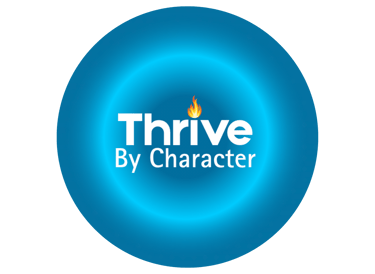Spiritual Authenticity
Rigid theological frameworks, like absolutism and relativism, can lead to conflict and misunderstanding, and calls for a more nuanced, introspective approach to faith that emphasizes moral courage and authentic spiritual growth.


The fundamental misunderstanding that plagues many today is that there are only two theological viewpoints from which one can understand truth: absolutism (one truth) and relativism (no absolute truth). These diametrically opposed viewpoints have contributed to fractures in inter-religious relations, intra-religious relations, and in all of society.
For absolutists, there is one truth, and beliefs and actions are deemed right or wrong, regardless of the circumstance. With so many religious commitments, absolutists are unable to create a humble culture of self-critique, doubt, struggle, and reinterpretation. It is certainty and fidelity to unquestioned norms that sustains this community.
For relativists, there are no absolute morals and truths; instead, these claims are made relative to particular circumstances that may include personal, social, cultural, or religious considerations. The famed philosopher David Hume is considered by many to be the founder of moral relativism (although the great philosopher Baruch Spinoza echoed similar ideas generations before Hume). Hume distinguished between matters of fact and matters of value, and argued that moral judgments were value judgments, as they do not deal with issues of fact. Thus, he denied that morality had an objective standard of review. Of course, relativism can potentially lead to problematic behavior and intellectual justifications for violence, greed, and misanthropy.
We should remember that many European absolutist movements have led to disaster. Absolute monarch, represented by French King Louis XIV, literally equated itself with rule by G-d, and horribly exploited millions of peasants to benefit a small group of wealthy nobles. In reaction, the French Revolution spun so far in the opposite direction that it tried to create a new calendar (with years numbered beginning with the revolution) and eventually disintegrated into terror, where everyone had to prove how loyal they were to revolutionary ideals or face the guillotine. In view of such historical instances, John Dewey, a 20th-century American philosopher, wrote about our obsessive longing we have for certainty that leads to destructive behavior and ways of thinking:
Such pretensions are known as quackery. But in morals a hankering for certainty, born of timidity and nourished by love of authoritative prestige, has led to the idea that absence of immutably fixed and universally applicable ready-made principles is equivalent to moral chaos…[There is] another manifestation of the desire to escape the strain of the actual moral situation, its genuine uncertainty of possibilities and consequences. We are confronted with another case of the all too human love of certainty, a case of the wish for an intellectual patent issued by authority.
The great philosopher Immanuel Kant, on the other hand, was a well-known relativist, and believed that due to our severance from the objective world we cannot know objective truths. Therefore, we structure the world according to fundamental and universal concepts and categories, which we use to make relative moral judgments. However, since we never know things as they truly are in their essence, we cannot judge them to be moral or absolutely right and wrong, only the individual act itself. Kant taught that Abraham should have reflected in the wake of G-d’s commandment to sacrifice Isaac, and concluded that anyone who asked him to kill his son could not actually be G-d. This is compelling, since the mind cannot imagine a malevolent G-d.
However, there are theological limits to this “Kantian” approach. When one is in doubt about a moral decision, Kant suggests that we resolve the issue by essentially playing G-d. His “categorical imperative” is a form of invitation to recreate the world. Essentially, every time one acts morally, one has the opportunity to start the world over by creating a new imperative that all must live by. We seek personal authenticity (the individual is the arbiter of morality) but also conformity, in that we are all bound to the same universal standards.
Consider how significant Thomas Jefferson viewed our modern era, guided by self-government and privileged with scientific progress. Still, Jefferson believed that periodic revolutions were necessary so as to restore freedom and independent thinking, shake power structures, and relive the struggle for self-rule so as to be a part of the community and state:
May it be to the world the signal of arousing men to burst the chains under which monkish ignorance and superstition had persuaded them to bind themselves, and to assume the blessings and security of self-government. That form, which we have substituted, restores the free right to the unbounded exercise of reason and freedom of opinion. All eyes are opened, or opening, to the rights of man. The general spread of the light of science has already laid open to every view the palpable truth, that the mass of mankind has not been born with saddles on their backs.
We should look at our generation with the same hope and promise that Jefferson did with his. We have been blessed with so much! Yet these same blessings have led us to succumb to routine and conventionality. It is time we break from this conformity, religiously and socially, and seek spiritual authenticity.
We are in desperate need of deeper moral struggle in religious life today, for individuals to wrestle autonomously, in dialogue with text and community, with moral problems. We must break free from the bondage of spiritual conformity and our routine methods of thinking about and addressing moral quandaries. Religious life that is driven by the social fear of being placed outside the camp has ceased to be an authentic religion of value. We must rebuild a culture of authentic, courageous, honest, encouraged spiritual exploration and service.
There is significant value to having ethical norms respected in society and in our various religious communities. Yet, we must not be satisfied with these ethical norms—we must not stop there. Lawrence Kohlberg, the founder of the modern academic field of moral development, taught that conformity to law and societal norms is an average level of moral development. Ultimately, one must live by conscience and principle, which may at times be opposed to social norms and spur a higher level of moral development.
Let us shed the fundamental misunderstanding that has come to plague our theological discourse and divide people. Our world is broken and we must echo that simple, yet profound, reply of Abraham—here I am—and heal the world that we have, undoubtedly, contributed to fracturing. We must realize that religious life is not about absolutes or relatives, but about living the values we have chosen to adhere to. We cannot look to any outside authority to awaken our own spiritual intensity or to arouse our heart to our own moral and spiritual calling. We must do that work on our own, albeit in community. Our tradition is rich and beautiful yet demanding, and we must faithfully serve others in the way that all those who have come before us have; for this is what spiritual authenticity is about. In the spirit of Jefferson—the time for revolution is now!
